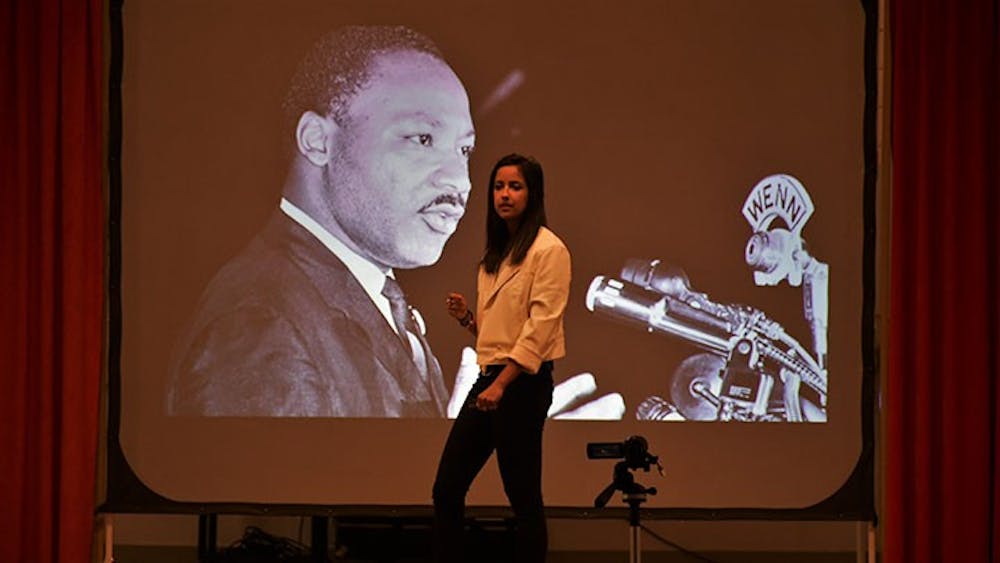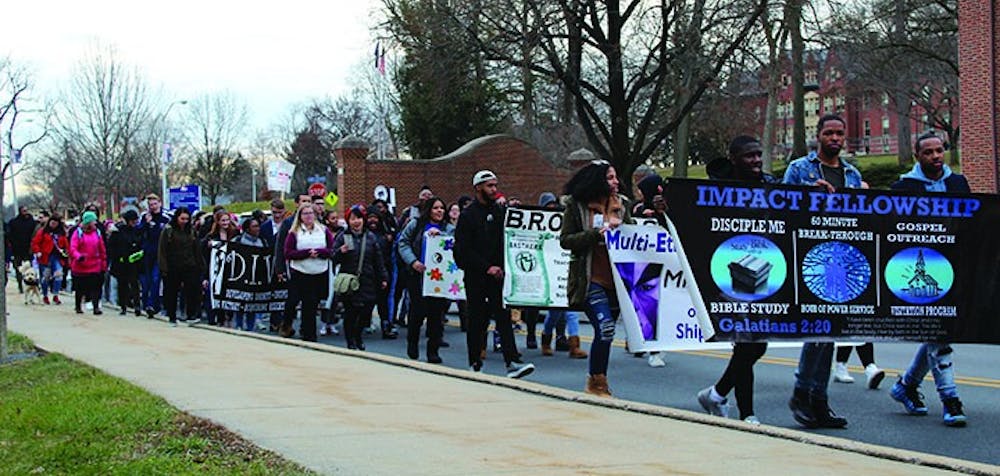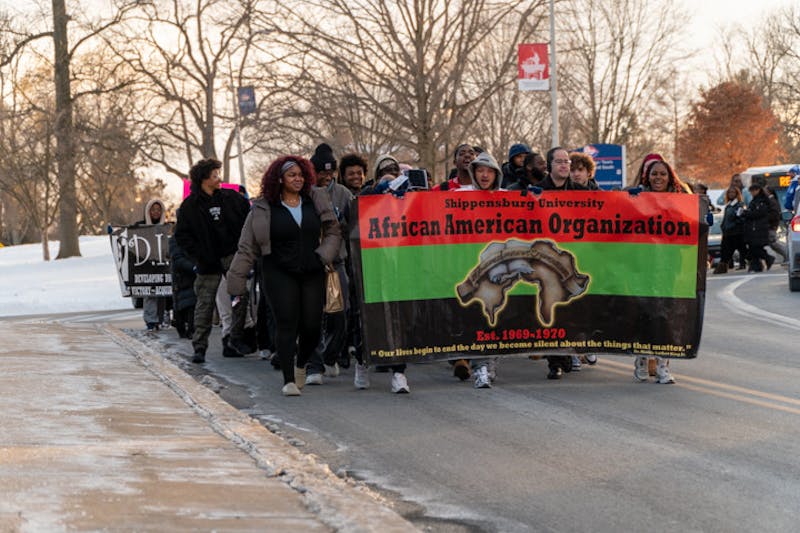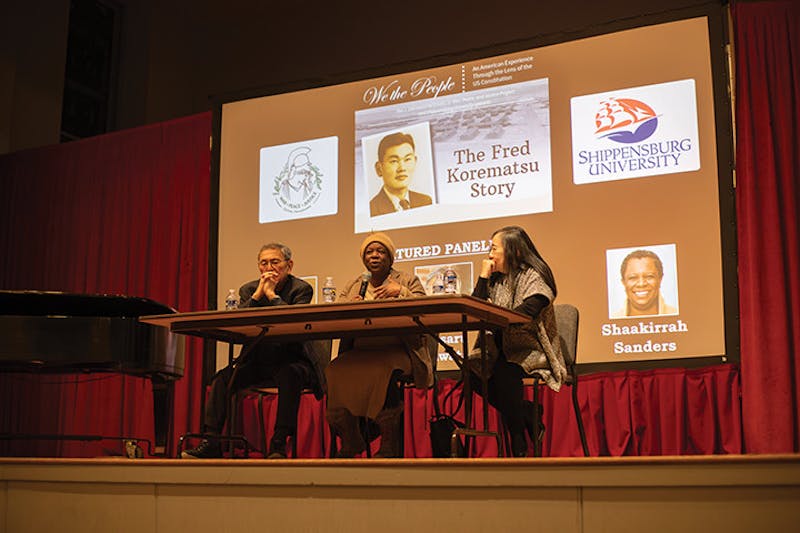Students, faculty and members of campus organizations filed into Old Main Chapel last Thursday to participate in the March for Humanity.
This was the 33rd annual March for Humanity and the pre-march assembly featured Keshia Hannam, who is an activist, writer and co-founder of Camel Assembly a global women’s platform. Hannam described herself as a perpetual immigrant, having been born in Hong Kong to an Indian mother and English father, and has lived in 10 different cities in the last 10 years. She brought a message of empathy and humanity to the program celebrating King’s work.
The March was sponsored by the African American Organization, ACT and the office Multicultural Student Affairs (MSA), according to an SU press release.
SU Provost Tom C. Ormond then gave remarks on King’s work, highlighting his focus to ensure that future generations would have access to education.
Ormond ended his statements by encouraging the crowd that while they would march that afternoon, all should seek to demonstrate the education, character and worthy objectives King worked for them to have.
Several students, including members of the SGA, The Afro-Am and the office of MSA shared their reasons for marching.
Aven Bittinger, the SGA president, shared a time when he was telling another person about a leadership internship he had taken part in. The individual told Bittinger they were glad he “spoke white” and praised his enunciation and tone.
“I think that story highlights why,” Bittinger said about his reason for marching.
Bittinger and several others said they marched in hopes that they would not have to march again next year.
Senior Leah Mottershead, president of the Multi-Ethnic Student Association (MESA), spoke about her life and experiences as a biracial person.
MESA focuses on multi-racial awareness and accepting the differences and likeness of biracial people, according to Mottershead. She explained biracial people are not considered white enough for whites, and not fully black, and the definitions and assumptions of people of mixed race imply they are below one race.
Mottershead also shared that she marched for racial equality and that biracial people should not have to identify with only one side of their heritage.
“Why should I have to divide myself to simplify my heritage for the satisfaction of others?” Mottershead asked.
Before Hannam began her speech, the lights dimmed and Cornelio Joseph, a drummer, began tapping a drum and dancing as photos from the civil rights movement flashed behind him.
Cornelio is a New York street performer as well as a DJ, drum teacher, producer. He also founded MNFST, a New York-based drumming group that gained fame through their street performances.
Cornelio began his street performance and drumming career to provide for himself and his family and has become known as highly skilled performer.
Hannam focused her speech on the ideas of empathy and humanity. “Empathy is recognizing our shared humanity,” Hannam said.

She shared that humans tend to look at what separates them rather than what they have in common. When people acknowledge underlying similarities of the human condition, it creates a foundation of mutual respect.
To conclude the assembly, Lance Hines-Butts of the Afro-Am organization presented the Drum Major for Justice Award to Elizabeth Yoder. Yoder received the award for her technical production work to include all organizations and her dedication to productions.
Kapri Brown, assistant to the director of MSA, called the crowd to march. The march turned onto Adams Drive as participants carried banners and signs calling out “No Struggle No Process” and “Yes we can, take a stand.”
The crowd concluded the march outside the Ceddia Union Building.




The Slate welcomes thoughtful discussion on all of our stories, but please keep comments civil and on-topic. Read our full guidelines here.